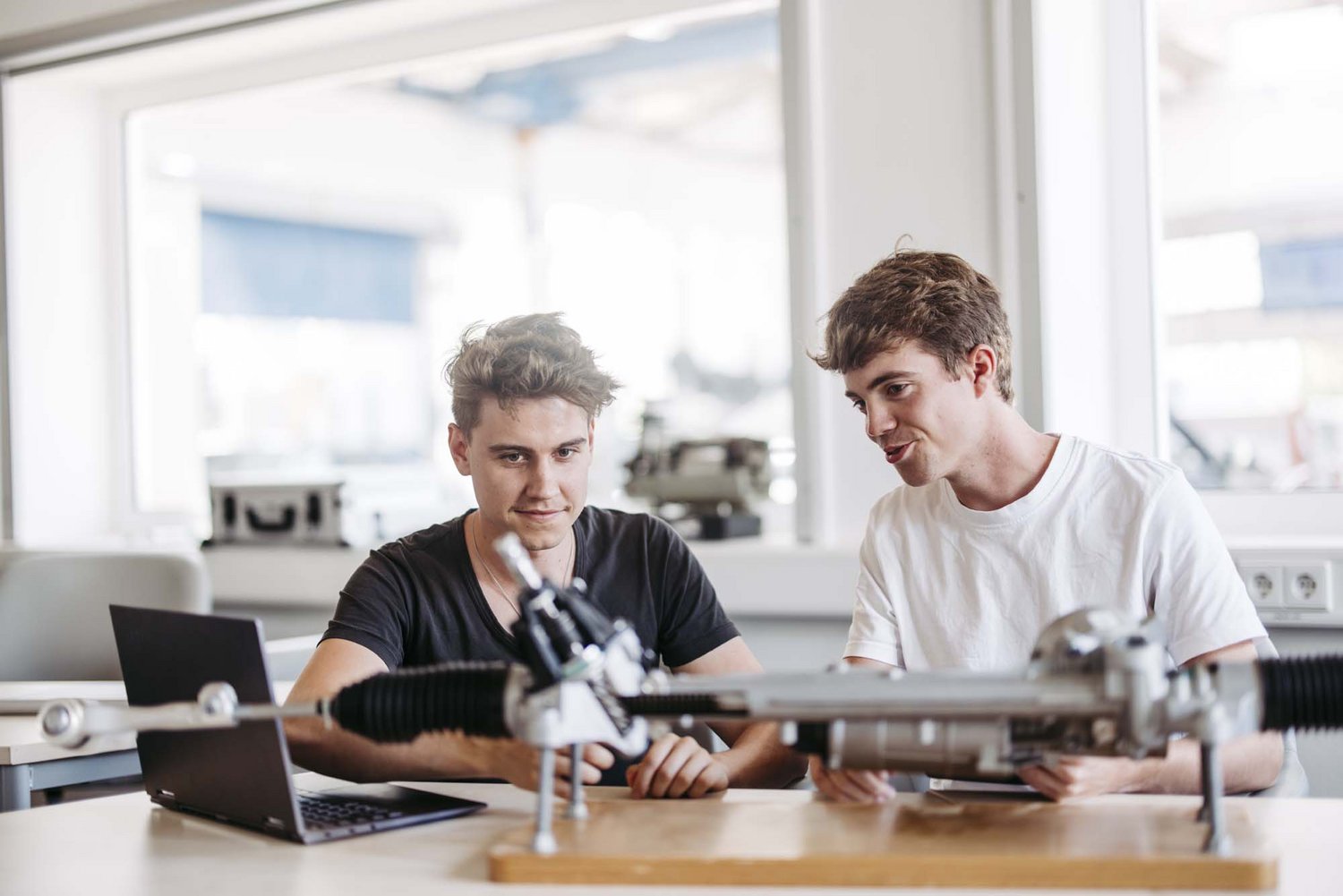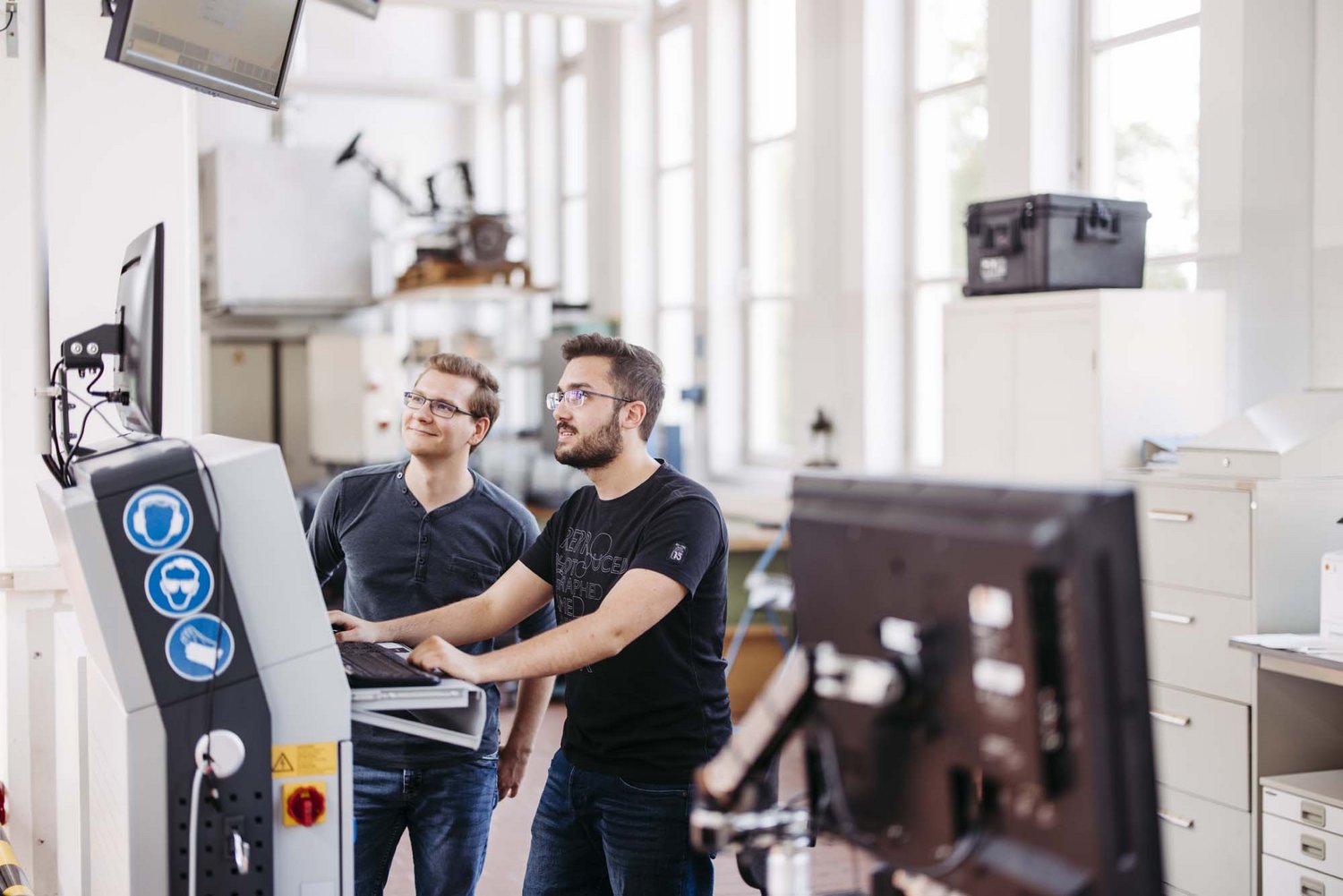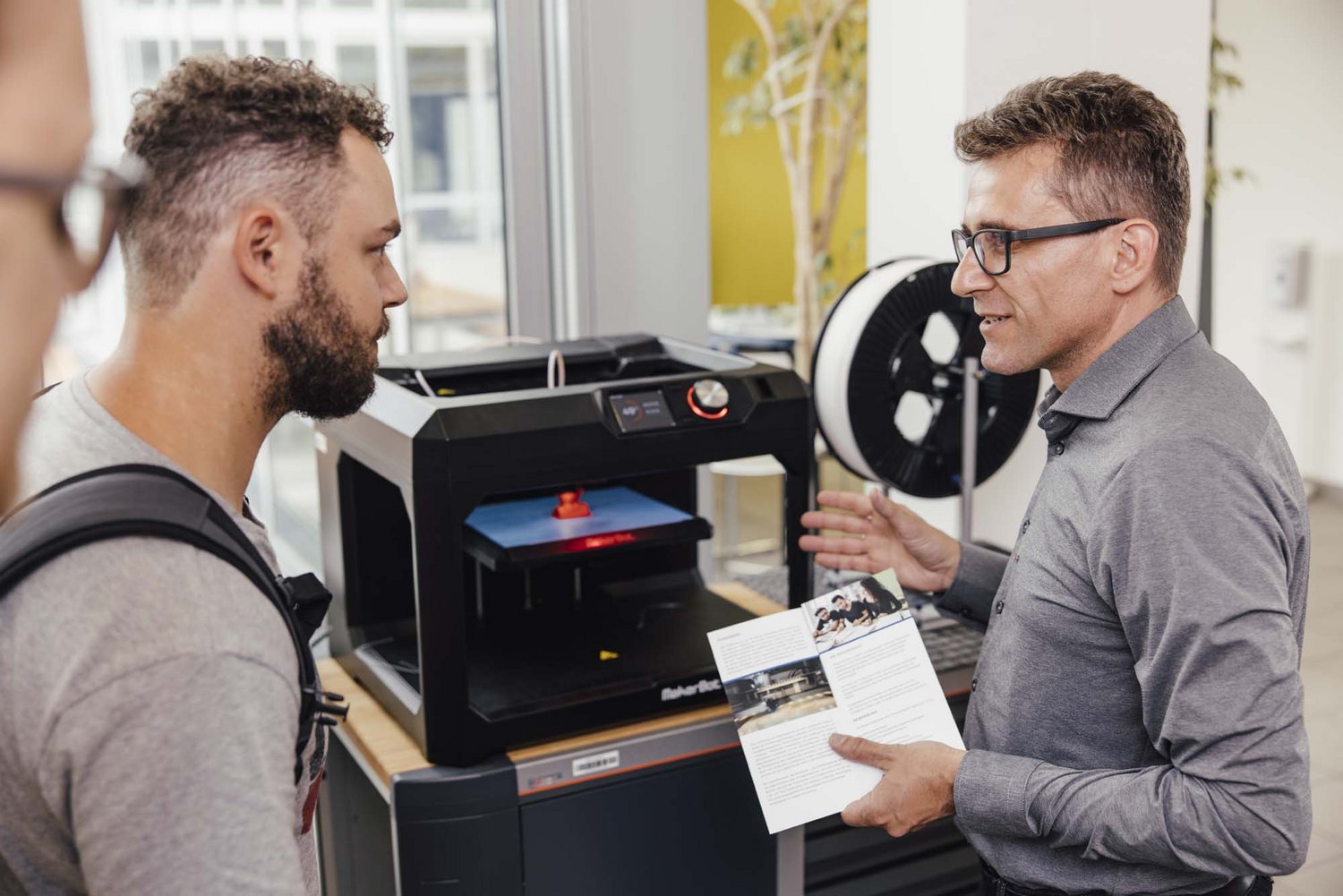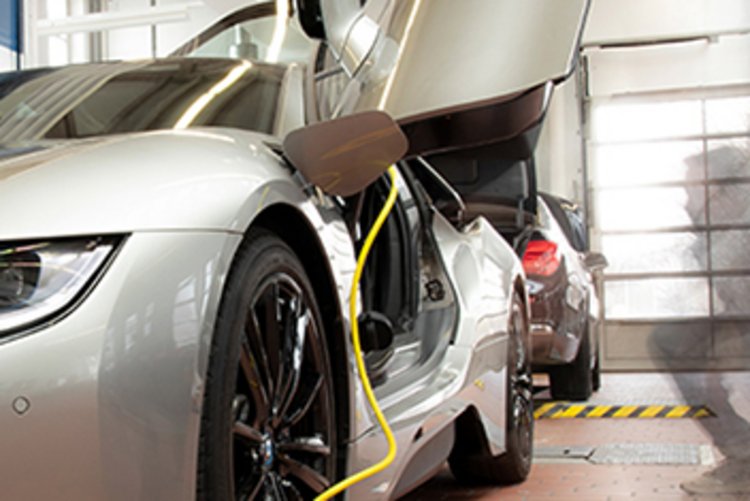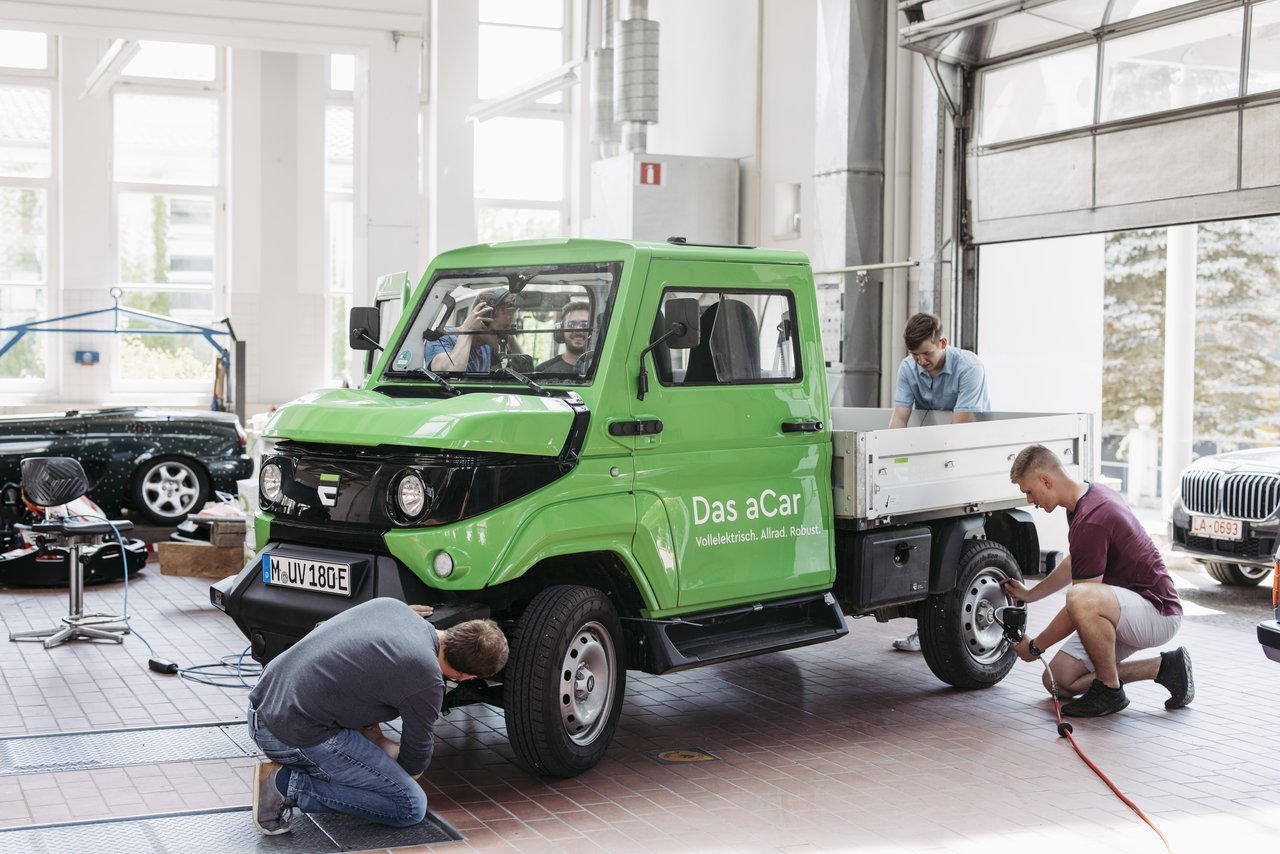
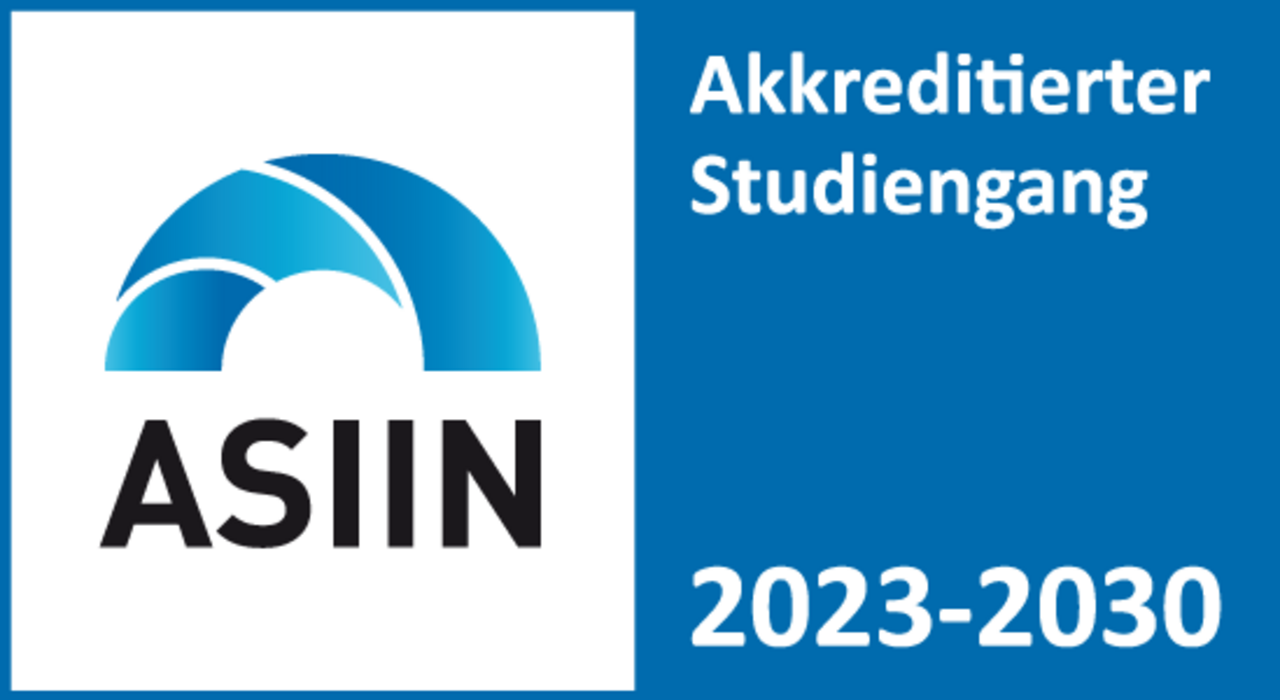
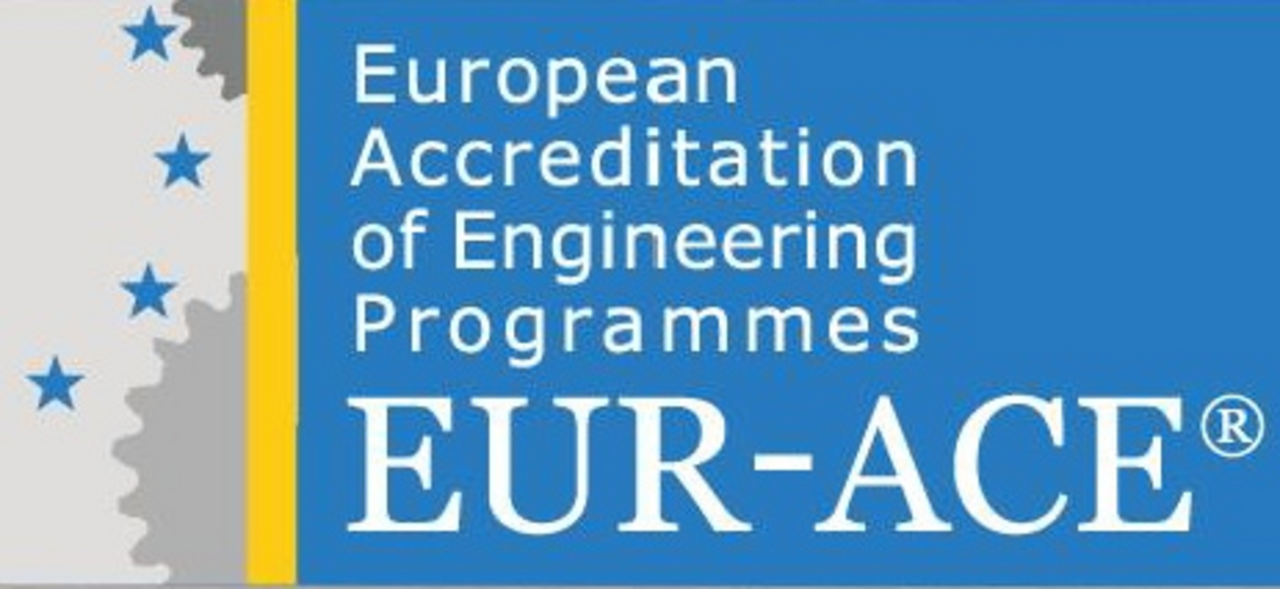
Accredited degree program
Automotive engineering
Bachelor of Engineering
Rarely has a key industry faced such major technical challenges as the vehicle sector: the shift from the classic combustion engine to alternative drive systems, autonomous driving, new and sustainable vehicle concepts and user-friendly design are just some of the most important buzzwords.
| Start | Winter semester |
|---|---|
| Admission Criteria | Open admission (no numerus clausus) |
| Application period | 15.04.2025 - 15.09.2025 |
| Study format | Full time, with in-depth practical experience, Joint degree programme |
| Study cost | None (only semester fee) |
| Normal duration | 7 Semester |
| Language | German |
| ECTS | 210 |
| Accredited degree program | |
  | |
The study programme / profile
The Automotive Engineering degree programme offers a modern basic engineering education in the first four semesters. You can then specialise in one of numerous specialisations, each with a different technical focus. The "international vehicle engineering" specialisation allows you to customise your studies and gain valuable experience abroad. Internships and laboratory exercises ensure a practical connection to the professional field. This optimally prepares you for future challenges and offers the best prerequisites for a successful career as an engineer in the automotive industry, supplier industry, development service providers, testing institutions or in expertises.
Profiling
In the third semester, you will have the opportunity to choose one of the available specialisations in order to set your study focus. In the following fourth semester, you will take the first courses in your chosen specialisation. You will then deepen your knowledge in the practical semester and in the sixth and seventh semesters, in which you can further develop your chosen profile.
Contents and course of study
The degree programme comprises six theoretical semesters and a practical semester in the fifth semester. semesters. The basic sciences are taught in the first three semesters: Engineering mathematics, materials science, design, etc.. This knowledge is deepened in the fourth semester. This is followed by specialisation through profiling modules, supplemented if necessary by an optional supplementary module. The programme concludes in the seventh semester with the completion of a Bachelor's thesis. Practical training is an integral part of the degree programme. It is carried out in industrial companies, technical institutions and public administration offices outside the university, supervised by the university and supplemented by practical courses.
learn moreDual study programme
The dual study programme is a practice-oriented form of study that combines theoretical course content at universities with professional practice in a company. During their dual study programme, students complete both lectures at the university and practical assignments at the company, allowing them to acquire both academic knowledge and practical experience at the same time.
Prospects after graduation
After completing the Bachelor's degree programme in Automotive Engineering, a wide range of career prospects open up in the automotive industry. Graduates can work in various areas such as vehicle development, production, quality assurance or sales. There are also opportunities for further studies or specialisations to deepen your knowledge in a specific area of automotive engineering.

Requirement profile
A requirements profile for the degree programme can help to identify the specific qualifications, skills and characteristics that are recommended for successful participation in the degree programme. For the Bachelor's degree programme in Automotive Engineering, these are as follows:
- Interest in technology
- Technical understanding
- Spatial awareness
- Skilled craftsmanship
- Creativity, inventiveness
- Carefulness, sense of responsibility
- Solution- and goal-orientated thinking and action
- Unconventional thinking
- Ability to recognise the essentials (ability to abstract)
- Ability to deal with many alternative solutions in parallel
- Ability to think in systems with a high number of mutual interactions

